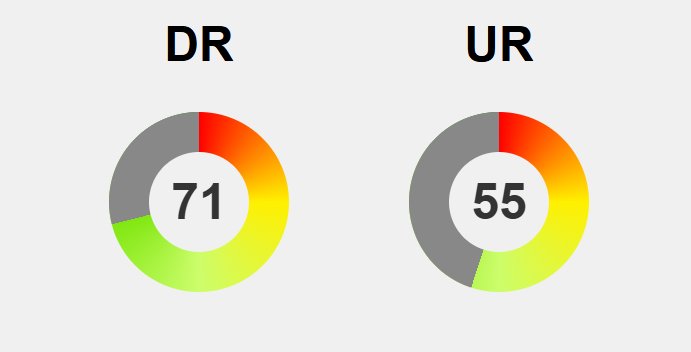Is IQ truly the ultimate measure of human potential, or are we overlooking vital qualities like creativity, emotional resilience, and grit? While traditional IQ tests focus narrowly on reasoning, memory, and problem-solving, they often fail to capture the rich tapestry of human abilities that drive success and fulfillment. Cultural biases and limited scope mean scores can misrepresent true talent, prompting a shift towards recognizing multiple intelligences and emotional skills. As research reveals the profound impact of traits such as perseverance and empathy, the conversation expands beyond a single number—challenging us to rethink how we define and nurture potential. The future promises innovative assessments leveraging AI and neuroscience to create more accurate, inclusive, and personalized profiles. Could these advances finally unlock a fuller understanding of human capability? Embracing this broader perspective opens the door to environments where diverse talents flourish, making success more accessible for everyone.
Rethinking Human Potential Beyond IQ Scores
The ongoing debate about IQ scores and what they truly reveal about human potential has persisted for decades. While IQ tests are designed to measure specific cognitive skills such as reasoning, memory, and problem-solving, they only provide a limited snapshot of a person’s abilities. These scores can be useful in certain situations, like identifying students who may need extra support or recognizing gifted individuals. However, they fall short of capturing the full range of qualities that contribute to success and fulfillment.
Many have historically regarded IQ as the ultimate indicator of intelligence, with standard scores averaging around 100. Yet, this approach oversimplifies the complex nature of human capabilities. A high IQ doesn’t guarantee social skills, emotional understanding, or resilience, while someone with a lower score might excel in creativity, leadership, or adaptability. Relying solely on IQ scores risks missing these vital traits that influence how people learn, grow, and navigate their lives.
Adding to the complexity, IQ tests are not immune to biases. Cultural and educational backgrounds can skew results, especially when questions rely on language, customs, or knowledge not universally shared. This can unfairly disadvantage certain groups and reinforce stereotypes about intelligence. Consequently, these limitations often lead us to underestimate the diverse talents and potential that exist beyond what a single number can measure.
In recent years, awareness has grown that traits like emotional intelligence, creativity, grit, and resilience are equally important—if not more so—than raw cognitive ability. These qualities shape how individuals handle setbacks, innovate, and pursue long-term goals. Recognizing this broader spectrum of human potential encourages us to rethink how we assess and nurture talent, both in education and in the workplace.
The conversation isn’t about dismissing IQ entirely but about understanding its limitations. True potential is a blend of many factors—cognitive, emotional, social, and experiential. By expanding our perspective, we open doors to more inclusive environments that support diverse talents and help individuals thrive in ways that standardized tests can’t capture. It’s time to look beyond the score and see the bigger picture of human capability.
Expanding the Concept of Intelligence: Theories and Models
Understanding intelligence today means looking beyond the narrow focus of traditional IQ tests. Over the years, psychologists and researchers have developed a variety of theories that paint a much richer picture of human capabilities. One of the most influential is Howard Gardner’s theory of multiple intelligences, which argues that intelligence isn’t just about logical reasoning but spans areas like musical talent, spatial awareness, kinesthetic skills, and interpersonal understanding. This idea challenges the notion that a single score can truly capture what someone is capable of, emphasizing that people excel in different domains.
Another significant perspective comes from Daniel Goleman’s work on emotional intelligence. He highlights skills such as self-awareness, empathy, and emotional regulation as key drivers of success. Unlike traditional IQ tests, which mainly focus on cognitive skills, emotional intelligence recognizes that understanding and managing emotions are crucial for building relationships and navigating social environments. This broader view helps explain why some individuals thrive in leadership roles or high-pressure situations even if their IQ isn’t exceptionally high.
Creativity and grit are also gaining recognition as vital traits that influence real-world outcomes. Creative intelligence involves thinking outside the box, generating innovative solutions, and approaching problems from new angles. Grit, defined as perseverance and passion for long-term goals, determines whether someone can sustain effort through setbacks. These qualities often matter more for success than raw cognitive ability, especially in fields that demand adaptability and resilience.
The evolving ideas about intelligence reflect a shift away from viewing ability as fixed or score-based. Instead, they highlight that each person has a unique combination of strengths—whether artistic, social, or analytical—that can be cultivated and developed. Recognizing this diversity encourages us to see intelligence as a multi-dimensional trait, opening new opportunities for education and personal growth.
This perspective also urges us to move beyond standardized testing as the sole measure of potential. Traits like emotional resilience, creativity, and perseverance often serve as better indicators of long-term success. Appreciating these qualities allows us to support a wider range of talents and foster environments where different kinds of intelligence can flourish.
In practical terms, embracing these broader views means designing educational systems that nurture varied abilities rather than chase a narrow definition of intelligence. It also means workplaces valuing soft skills alongside technical expertise, promoting teamwork and adaptability. When we do so, we create more inclusive environments that recognize and develop the full spectrum of human potential.
As research advances, the future of understanding intelligence looks even more promising. Emerging tools and technologies are paving the way for personalized assessments that capture multiple domains of ability. These innovations will help us identify and nurture talents that traditional tests often overlook, making the concept of intelligence more dynamic and inclusive than ever before.
Current Attitudes and Practices: The Limits of IQ Assessments
Today, society continues to lean heavily on IQ scores as a primary way to assess intelligence, especially within educational and professional settings. Schools frequently use standardized tests to place students on tracks, identify those needing extra support, or spot gifted learners. These scores often serve as quick benchmarks, influencing academic paths from an early age. Similarly, many employers incorporate cognitive assessments into hiring processes, believing higher IQ scores correlate with better problem-solving skills and quicker learning.
However, this reliance on IQ testing isn’t without problems. Critics argue that these assessments narrow the definition of intelligence, focusing mainly on reasoning, memory, and analytical skills. They tend to overlook qualities like emotional resilience, creativity, social skills, and motivation—traits that are often crucial for long-term success. When we depend solely on IQ scores, we risk missing the full picture of a person’s potential and talents.
Cultural and socioeconomic biases add another layer of complexity. Many tests are rooted in specific cultural knowledge or language, which can unfairly disadvantage students from diverse backgrounds. Questions that assume familiarity with certain customs or vocabulary can skew results, making scores less about innate ability and more about exposure. This bias can reinforce stereotypes and perpetuate inequality, especially when scores influence significant decisions about future opportunities.
Despite these issues, IQ scores remain widely used because they provide a straightforward, seemingly objective way to compare cognitive abilities across large groups. Their simplicity appeals to educators and employers alike. Yet, this convenience often masks the fact that these tests neglect the broader range of skills and qualities that contribute to real-world success.
In recent years, there’s been a growing awareness of these limitations. Educational systems and organizations are exploring alternative assessment methods—such as emotional intelligence tests, performance-based tasks, and personality assessments—that aim to capture a wider array of talents. These approaches recognize that potential isn’t fixed or solely cognitive but includes resilience, creativity, and interpersonal skills.
As understanding evolves, it becomes clear that relying solely on traditional IQ scores is insufficient. Embracing a more nuanced view of intelligence encourages environments—both in schools and workplaces—that nurture diverse talents. Moving beyond a narrow focus allows us to better recognize and develop the full spectrum of human potential, making opportunities more inclusive and meaningful.
To support this shift, many experts recommend exploring innovative resources that promote holistic assessments. For those interested in understanding how alternative evaluation methods can provide a more comprehensive view of intelligence, additional information can be found at holistic intelligence approaches. Incorporating these insights can help create more equitable and effective systems for recognizing individual talents.
Harnessing Diverse Traits to Transform Education and Work
Understanding the full spectrum of human traits that contribute to intelligence can significantly transform how we approach education, work, and personal growth. When educators recognize qualities like creativity, emotional resilience, and grit, they can design teaching methods that go beyond memorization and standardized testing. Emphasizing a growth mindset encourages students to see abilities as developable, inspiring effort and perseverance rather than fixating on innate talent. This shift helps uncover talents that traditional assessments often overlook and fosters more holistic development.
In the workplace, valuing soft skills such as adaptability, curiosity, and emotional intelligence creates stronger, more resilient teams. Employers who prioritize these qualities tend to develop innovative, collaborative environments. Incorporating behavioral interviews or real-world problem-solving exercises into hiring processes offers a clearer picture of a candidate’s potential beyond IQ scores. Recognizing traits like resilience and teamwork as key indicators of success pushes organizations to nurture well-rounded employees capable of navigating complex challenges and rapid change.
On a personal level, understanding that persistence, empathy, and emotional awareness are vital unlocks new avenues for growth. Developing a growth mindset, practicing self-awareness, and engaging in diverse activities—whether arts, puzzles, or leadership roles—can cultivate qualities that enhance problem-solving, creativity, and emotional resilience. These traits not only foster continuous self-improvement but also increase the ability to adapt in an ever-evolving world, making success more accessible regardless of initial cognitive ability.
Stories of innovators and leaders illustrate how traits like determination, creativity, and emotional resilience often matter more than IQ in achieving meaningful success. Thomas Edison’s relentless curiosity and perseverance, J.K. Rowling’s resilience in rejection—these examples show that qualities like grit and emotional strength are crucial. Cultivating these traits empowers individuals to unlock their full potential and pursue their passions with vigor, often surpassing what traditional measures of intelligence can predict.
Focusing on developing these qualities changes how we view potential. It encourages us to see intelligence as a multi-dimensional trait that can be cultivated, rather than a fixed asset limited by test scores. This broader perspective supports environments in education and the workplace that nurture diverse talents, making opportunities more inclusive and equitable. By emphasizing emotional resilience, creativity, and grit, we foster a culture that values growth and adaptability over narrow definitions of intelligence.
This shift has practical implications for how we design learning and development programs. Tailoring approaches to individual strengths and interests helps unlock talents that standardized methods might miss. For example, project-based learning, mentorship, and experiential activities can cultivate skills like leadership and problem-solving—traits essential for real-world success. These strategies create a more engaging, personalized experience that recognizes the unique potential in every individual.
In personal development, embracing a broader view of intelligence encourages continuous effort and resilience. Setting goals that focus on growth, self-awareness, and emotional understanding helps build a resilient mindset. Engaging in diverse activities, seeking feedback, and reflecting on progress become powerful tools for unlocking hidden talents and fostering lifelong learning. The emphasis shifts from innate ability to the capacity for growth and adaptation.
By expanding our understanding of what makes someone truly capable, we open new pathways for nurturing talent in all its forms. Education, workplaces, and personal pursuits become more inclusive and supportive when they recognize that traits like creativity, emotional strength, and perseverance are just as vital as cognitive skills. This approach not only broadens the definition of potential but also paves the way for a more innovative, resilient, and equitable society.
The Future of Intelligence Measurement: Embracing Complexity and Personalization
The way we measure human intelligence is undergoing a significant transformation, and the future promises assessments that are more nuanced, inclusive, and tailored to individual strengths. Advances in technology, especially artificial intelligence and data analytics, are paving the way for tools that go far beyond traditional IQ tests. Instead of a single score, these innovations aim to provide a multidimensional profile of a person’s abilities, capturing diverse skills like emotional intelligence, creativity, and problem-solving in real time.
Emerging assessment platforms leverage AI to simulate complex, real-world challenges, revealing how individuals respond under pressure or adapt to unfamiliar situations. These dynamic evaluations offer insights into qualities that static tests often overlook, making the measurement process more relevant to today’s fast-changing environment. By continuously refining algorithms, these tools can adapt to each person’s unique profile, providing personalized feedback and growth pathways.
Research into brain-based metrics adds another layer to this evolving landscape. Techniques such as neural imaging and cognitive flexibility assessments are beginning to uncover the biological foundations of different intelligence types. Understanding how the brain supports traits like resilience, innovation, and emotional regulation helps identify latent potential in individuals who might not perform well on traditional tests but demonstrate exceptional capabilities elsewhere.
Data analytics and machine learning further enhance our understanding by tracking development over time. Instead of static scores, we obtain dynamic profiles that reveal a person’s learning agility, perseverance, and adaptability. Recognizing that intelligence is fluid and developable shifts the focus from innate ability to growth potential, allowing educational and professional strategies to be more personalized and effective.
The move toward personalized assessment and learning models will reshape education and talent development. These tools will diagnose strengths and weaknesses at an individual level, recommending targeted strategies for growth. Such approaches emphasize effort, environment, and continuous improvement, acknowledging that anyone can develop new skills with the right support.
As these innovations become mainstream, they will foster a more inclusive view of potential. By recognizing diverse talents and qualities, society can better nurture each person’s unique capabilities. This shift encourages environments—whether in schools or workplaces—that value resilience, creativity, and emotional intelligence as much as traditional cognitive skills.
The future of intelligence measurement lies in embracing complexity and diversity. It’s about creating tools that reflect the true richness of human talent, allowing us to see potential in everyone. With ongoing technological and scientific progress, we’re moving toward a world where assessment is more accurate, fair, and capable of unlocking hidden strengths, ultimately shaping a society that values growth, adaptability, and the full spectrum of human ability.



